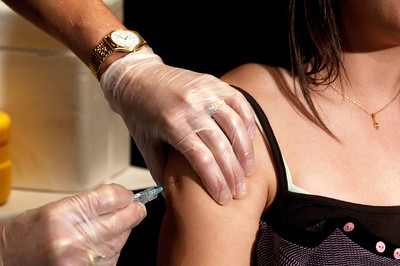The Community College of Rhode Island recently combined a fall enrollment drive with a COVID-19 vaccination clinic. That approach may pay dividends later this year. State health officials are growing increasingly concerned about the arrival of the COVID-19 Delta variant.
The Delta variant first emerged in India. It is 50% more contagious than the B.1.1.7 (Alpha) variant that swept through Michigan earlier this year. The highly contagious Delta variant has prompted some health agencies to recommend a return to masking indoors for unvaccinated people.
In addition, a growing body of evidence shows that the Delta variant can break through the mRNA vaccines (Pfizer and Moderna). Although COVID-19 vaccination offers substantial protection against serious disease from the Delta variant, some fully vaccinated individuals have contracted it. Data from Britain suggests that the Pfizer vaccine is 88% effective against serious disease or death caused by the Delta variant. Data from Israel showed that the Pfizer vaccine is just 64% effective against the Delta variant in preventing serious disease or death.
According to the Michigan Department of Health and Human Services, the overwhelming majority of hospitalizations for COVID-19 (99%+) are occurring among unvaccinated people. In Washtenaw County, as of July 15, 52% of COVID-19 cases occurred in people between the ages of 18-39. These cases also accounted for 11.5% of hospitalizations.
COVID-19 vaccination among young adults is essential
COVID-19 vaccination for people in the 18-39 age brackets is especially important. The CDC expects the Delta variant to become the dominant strain in the US this month. In addition, data show that it causes more serious disease in young adults than earlier strains did. Another new variant, Gamma, has emerged in Brazil. It is also increasing the case load. Delta appears to cause significant spread among unvaccinated individuals. The Gamma variant seems to be more adept at infecting vaccinated individuals.
There’s a lot of value in encouraging individuals in the 18-39 age bracket to vaccinate. COVID-19 vaccination produces a lower incidence of serious disease, death and long-term complications following infection.
WCC has more contact with people in this particular age bracket than most local institutions do. Combining enrollment activities with pop-up COVID-19 vaccination opportunities can help not only fill fall classes, but also ensure that students remain healthy.
Last month, WCC announced that it had joined the COVID-19 College Vaccine Challenge . As of this writing, however, the WCC website does not include any information about vaccine availability or vaccination clinics on campus for students.
The coming weeks are the best (and perhaps last) opportunity to blunt the impact of the Delta and Gamma variants by making it easy for students to access COVID-19 vaccination before the fall semester starts.
Photo Credit: VCU Capital News Service , via Flickr













